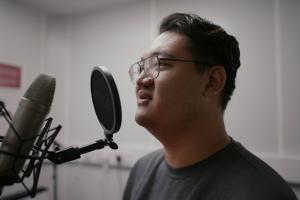Find the right English Language course for you
Do you have a question about life as a Bangor University student? Our ambassadors will be happy to help you find the answer.
They can tell you more about studying here, about the amazing Clubs and Societies we have, and how they made friends and settled in to life at university as an English Language student.
If you have any questions about the course, our lecturers are on hand to help. Below are some examples of frequently asked questions. Can you think of any more?
- What are the qualities of a successful English Language student at Bangor?
- How can I prepare myself to study English Language student at Bangor?
- How will I know that English Language at Bangor is the right choice for me?
Connect with us on Social Media
You may also be interested in these related subject areas.
You may also be interested in these related subject areas.








